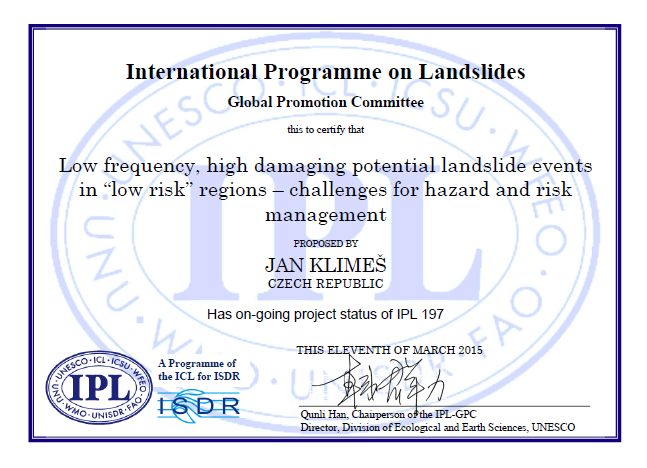The proposed project is based on experiences gathered during last twenty years of landslide research in the Czech Republic, during which several "unexpected" landslide events occurred caught unprepared local authorities as well public.
It is despite of available landslide susceptibility maps, long-term monitoring of several different landslide types and successful evaluation of effects of past precipitations on landslide occurrence frequencies.
Czech Republic is also a country with enough expert knowledge to avoid major financial losses caused by landslides. Despite of all that, landsides are damaging every year houses and roads and in extreme cases cause even fatalities.
This project aims on gathering all available knowledge and experience to come up with best practice for effective and sustainable landslide risk management in conditions of countries or regions with relative low risk levels as compared the global landslide "hot spots".
IPL-197 - International Programme on Landslides
International Consortium on Landslides (ICL)
2015-2017
Dr. Jan Klimeš, Ph.D.
Institute of Rock Structure and Mechanics of the CAS

